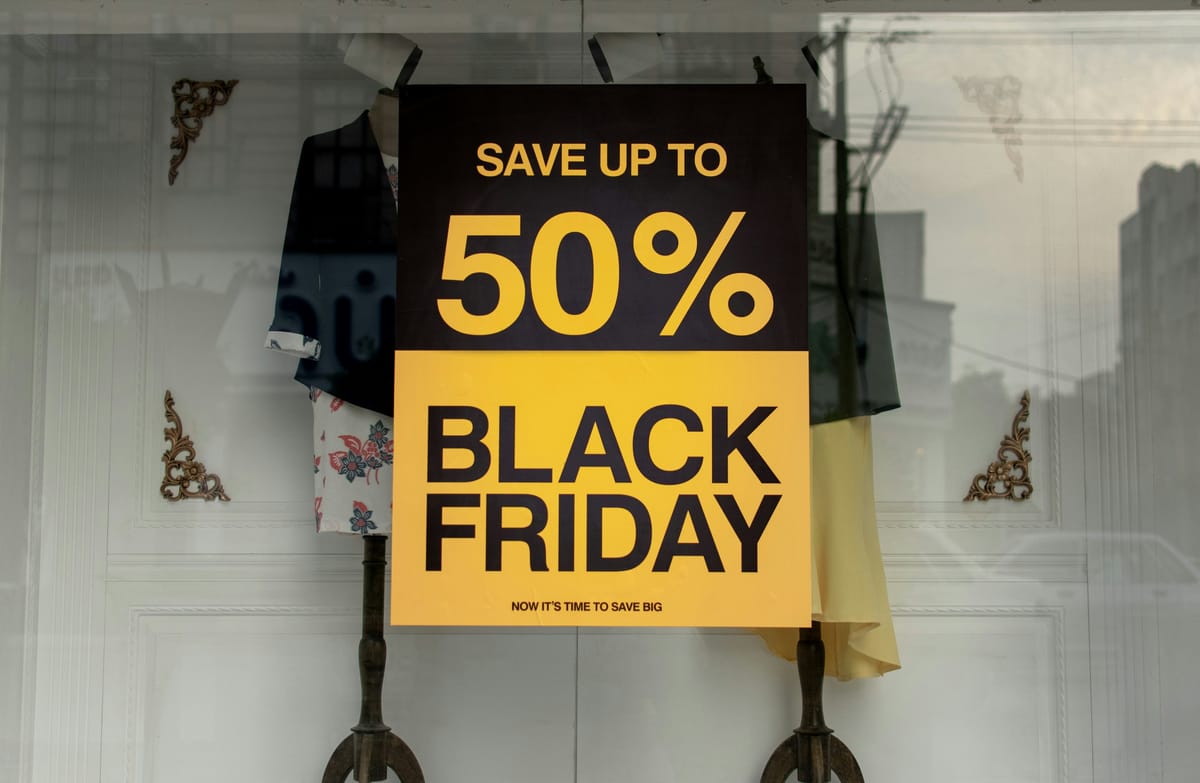The Origins of Black Friday

Introduction
Every year, as the Thanksgiving turkey digests, retail enthusiasts across America eagerly anticipate a shopping extravaganza like no other—Black Friday. But how did this day, once known for chaotic crowds and midnight madness, evolve into the online shopping giant it is today? This post will explore the intriguing history of Black Friday, tracing its origins and examining its present state. From bustling department stores to digital deals, we'll uncover the transformation of this global shopping phenomenon and what it means for the future of retail.
Why is it called Black Friday?
The term "Black Friday" is said to have originated in the streets of Philadelphia during the 1960s. Police officers coined the term to describe the day after Thanksgiving, when hordes of suburban shoppers and tourists flooded into the city. The chaos caused by heavy traffic and clogged sidewalks left the police force with little to be thankful for. Over time, retailers adopted the term, giving it a more positive connotation to signify the point in the year when stores would finally turn a profit or go "into the black."
This shift in meaning marked the beginning of Black Friday's association with shopping. Retailers saw an opportunity to capitalize on the influx of customers by offering enticing discounts and deals. What once started as a local phenomenon quickly gained national attention, setting the stage for what we now recognize as the modern Black Friday shopping tradition.
Black Friday Through the Decades
Throughout the years, Black Friday has grown exponentially. In the 1980s and 1990s, department stores and big-box retailers like Macy's and Walmart led the charge, luring customers with doorbuster deals and deep discounts. The introduction of promotional strategies such as extended store hours and limited-time offers further fueled the Black Friday frenzy, creating an atmosphere of urgency and excitement.
The advent of technology in the 2000s brought about significant changes in shopping behaviors. The rise of online retailers like Amazon challenged traditional brick-and-mortar stores, providing consumers with convenient alternatives to battle the Black Friday crowds. This digital shift revolutionized the shopping landscape, giving birth to new concepts such as Cyber Monday, an online shopping day following Black Friday.
Black Friday Around the World
What began as an American tradition soon spread beyond its borders, captivating shoppers around the globe. Countries like Canada, the United Kingdom, and Australia embraced Black Friday, adapting it to fit their cultural contexts. In some places, Black Friday has even become a week-long event, with retailers offering extended sales and promotions to accommodate growing demand.
In China, Black Friday coincides with the country's annual Singles' Day, a massive online shopping festival. The influence of Black Friday has sparked interest in other countries, leading to the adoption of similar shopping events, such as Boxing Day sales in Canada and the UK's January sales. While the global spread of Black Friday has undoubtedly increased consumer enthusiasm, it has also raised questions about its impact on local economies and cultural values.
The Evolution of Black Friday Sales
In recent years, the focus of Black Friday has shifted from in-store chaos to online convenience. The rise of e-commerce has transformed the landscape, allowing consumers to snag deals from the comfort of their homes. Online retailers have capitalized on this shift by offering enticing promotions, exclusive online-only deals, and extended sale periods, blurring the lines between Black Friday and Cyber Monday.
Mobile shopping has further revolutionized the way consumers participate in Black Friday. With the advent of smartphones and shopping apps, customers can access deals on the go, maximizing convenience and accessibility. This digital transformation has not only reshaped the way people shop but also opened new opportunities for businesses to engage with their customers.
The Future of Black Friday
As we look ahead, it's clear that Black Friday will continue to evolve alongside technological advancements and consumer preferences. The integration of artificial intelligence and machine learning is set to further personalize the shopping experience, offering tailored recommendations and dynamic pricing strategies. Data-driven insights will enable retailers to optimize inventory and marketing efforts, ensuring customers receive the best deals.
Sustainability will likely play a more prominent role in the future of Black Friday. Growing consumer awareness of environmental issues will drive demand for eco-friendly products and sustainable packaging. Retailers who prioritize sustainability in their Black Friday offerings will not only attract environmentally conscious consumers but also contribute to a more responsible shopping culture.
Conclusion
From its chaotic origins in Philadelphia to its global presence today, Black Friday has undergone a remarkable transformation. It has evolved from a day of in-store madness to a digital shopping extravaganza, shaping the way we shop and redefining the retail landscape. Whether you're a retail enthusiast eager for deals or a history buff curious about its roots, Black Friday remains a fascinating cultural phenomenon.
By 2024, Black Friday will fall on November 29th, promising a new chapter in its storied history. As you prepare for the upcoming shopping season, think about using a wishlist like HappyWishlist to prepare for the chaotic day and help make your shopping experience alittle smoother.




